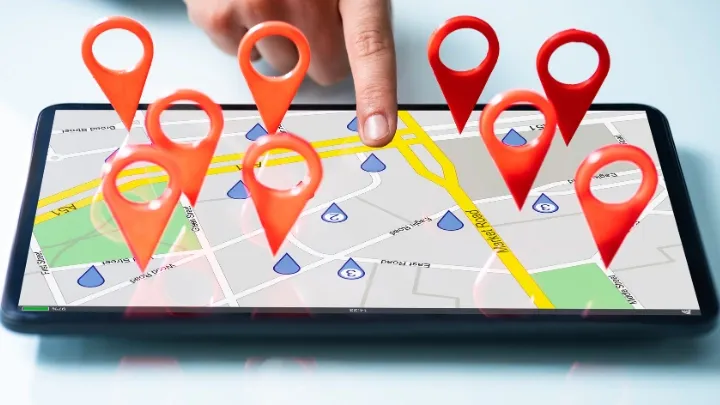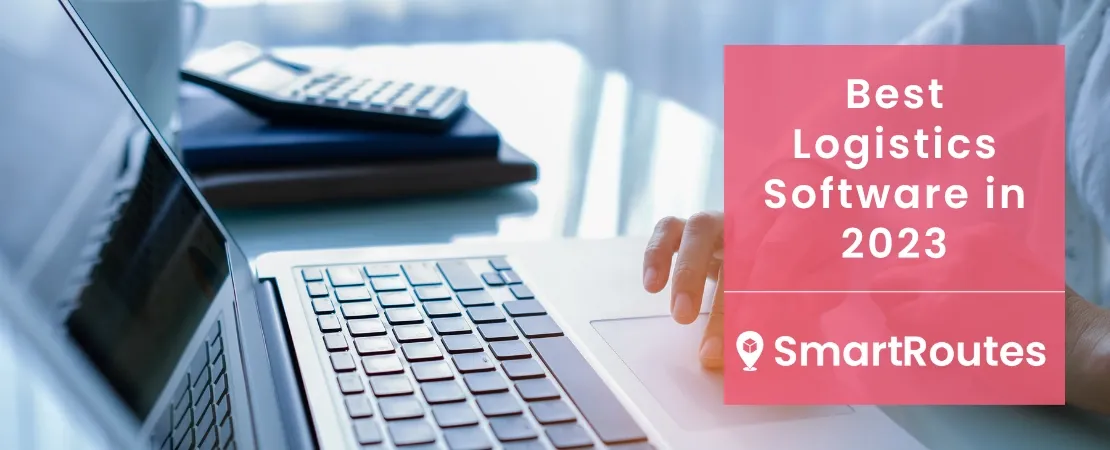Logistics is a critical aspect of any business that involves the movement of goods and products. It can be a hassle to manage your supply chain and ensure your products are delivered on time and in good condition. But with the right logistics software, businesses can streamline their operations and improve efficiency.
The global e-commerce logistics market is expected to grow by 7.9% in 2023, reaching a value of €451,239.3m. As a result, it's more important than ever to have the best logistics software at your fingertips. With people expecting fast and reliable shipping, you need software that can keep up with your needs and provide features like real-time tracking, route optimization and inventory management.
In this blog post, we'll take a closer look at the top logistics management software available in 2023 and show you what to look for when choosing a solution that's right for you.
Why Should you use Logistics Software?
Logistics software is an essential tool for businesses looking to streamline their supply chain management and increase efficiency. By using a logistics management system, companies can optimize routes, track shipments in real-time, manage inventory, and automate tasks that were once done manually.
One of the main benefits of using this management software is that it can help save time and money. By optimizing delivery routes and reducing unnecessary trips, companies can save on fuel costs and increase the number of deliveries made per day. With real-time tracking, businesses can monitor the movement of their products and address any issues before they become bigger problems.
SmartRoutes Route Planning Software
Streamline your entire delivery process, all from one platform

Another benefit of using is that it can help businesses improve their customer service. With the ability to track shipments in real-time, companies can provide their customers with accurate delivery times and ensure that packages are delivered on time. Additionally, by automating tasks such as inventory management and order processing, companies can focus on providing better customer service rather than being bogged down by administrative tasks.
Logistics providers can also benefit from valuable insights into their supply chain operations. By analyzing data such as delivery times, inventory levels and order volumes, companies can identify areas for improvement
Key Features to Look for in Logistics Software
There are certain key features that businesses should look for to ensure that they're getting the best value for their investment. These features include:
1) Real-time tracking
Real-time tracking is a crucial feature as it provides businesses with up-to-the-minute information on the movement of their products. Businesses can monitor the location of their products at any time, ensuring that they're on track to reach their destination. Live tracking software provides visibility into the entire supply chain, allowing businesses to quickly identify any potential issues or delays and take corrective action to avoid any disruptions.
This feature is especially important for businesses that operate in time-sensitive industries like e-commerce, healthcare and perishable goods. Additionally, it can help businesses manage customer expectations by providing accurate and timely delivery updates.

2) Route optimization
Route optimization helps logistics providers identify the most efficient routes for their products to reach their intended destination. It takes into account various factors like traffic conditions, distance, delivery times and vehicle capacity to ensure that products are delivered as quickly and cost-effectively as possible.
Route optimization software uses advanced algorithms and data analytics to identify the most efficient routes for deliveries. This feature helps businesses reduce delivery times, fuel costs and other expenses associated with transportation. Moreover, route optimization can also help businesses reduce their carbon footprint by minimizing the number of vehicles required to make the same amount of deliveries.
This can help improve warehouse management as businesses can automate their order fulfillment processes and improve their packing efficiency. This helps to optimize space utilization and reduce errors and inaccuracies associated with manual data entry.
3) Integrations with other software
The ability to integrate with existing systems is a key feature of logistics software that helps businesses streamline their operations and reduce manual data entry. By integrating with other systems like EPOS (Electronic Point of Sale) and order management systems, logistics management solutions can provide businesses with a centralized platform to manage their operations.
For example, integrating with an order management system can provide businesses with real-time inventory management, allowing them to manage their stock levels, monitor product movement and automate the order fulfillment process.
4) User-friendly interface
A user-friendly interface is an essential feature of logistics software that can make all the difference in helping businesses quickly adopt and use the software effectively. A user-friendly interface should be intuitive, easy to navigate and provide clear information and insights.
A well-designed interface should be simple to use and require minimal training, allowing users to quickly adapt to the software and start using it to its full potential. It should also give a business a comprehensive view of its logistics operations, allowing them to quickly identify any issues and make informed decisions. By providing a centralized platform to manage logistics operations, a user-friendly interface can help team members stay connected, share information and collaborate more effectively.
5) Reporting and analytics
The ability to generate and pull reports is a crucial feature that offers businesses a wealth of valuable insights into their operations. Reports provide businesses with a comprehensive overview of their logistics performance and help them make informed decisions based on data-driven analysis.
By collating data from various sources, logistics software can provide businesses with a flexible and customizable reporting system that allows them to track and analyze KPIs that are most relevant to their business. These KPIs may include metrics such as order processing time, delivery time, inventory levels, shipping costs and more.
Performance can be monitored in real time and business can track their progress towards goals. Reports can be generated on demand or scheduled to be automatically sent to key stakeholders, providing them with timely and relevant information to make informed decisions.
Furthermore, reports generated by logistics software can help businesses identify areas for improvement. By analyzing trends and patterns in their data, businesses can identify bottlenecks or inefficiencies in their supply chain and take steps to optimize their operations. This can help businesses reduce costs, improve delivery times, and enhance the overall customer experience.

5 Best Logistics Software in 2023
1) SmartRoutes
SmartRoutes is an all-in-one logistics management software offering comprehensive features designed to help businesses streamline their logistics operations and improve their performance. Among its many features, one standout capability is its intelligent dispatching functionality, which can help businesses optimize their delivery process and reduce costs.
With SmartRoutes, dispatchers can assign orders to drivers based on their proximity and availability, ensuring that orders are dispatched in the most efficient way possible. This feature helps to reduce delivery times, improve resource utilization, and optimize delivery routes, ultimately leading to cost savings and increased customer satisfaction.
Another key feature of SmartRoutes' cloud based software is its driver mobile app, which allows drivers to access delivery details and update their progress in real-time. This seamless communication between drivers and dispatchers helps to ensure that orders are fulfilled efficiently and on time.
SmartRoutes also offers powerful reporting and analytics features, allowing businesses to gain insights into their logistics operations and identify areas for improvement. Through the software's reporting capabilities, businesses can generate detailed reports on key performance metrics such as delivery times, driver performance and customer satisfaction. These insights can help businesses make data-driven decisions and optimize their logistics operations for better performance.

2) UpperInc
By utilizing Upper Route Planner, businesses can significantly reduce gas expenditures and mileage costs, while also optimizing routes to ensure that customers receive their packages sooner. This not only increases customer satisfaction but also enhances retention rates. The software offers real-time tracking and route optimization features, which allow businesses to monitor the movement of their products in real-time and determine the most efficient route for their products to reach their destination.
Additionally, the route planner can accommodate reverse logistics, making it easy to implement no-fuss return policies. Integration with other systems, such as CRM and ERP, streamlines operations and reduces manual data entry, ultimately making the entire logistics process more efficient.
3) Bringg
Bringg offers a comprehensive solution for businesses looking to make their delivery operations more efficient. The platform provides businesses with the ability to customize and optimize their delivery processes to meet specific business goals and KPIs. By connecting and digitizing the entire last mile ecosystem, Bringg helps businesses increase delivery capacity, reduce last mile costs and offer a seamless branded customer experience.
The platform offers a range of features, including real-time tracking, route optimization, and integration with third-party systems. With Bringg, businesses can achieve better visibility and control over their delivery operations, ensuring a positive customer experience every time.
4) FarEye
FarEye platform is designed to simplify delivery logistics at every stage of the delivery journey. With their technology, businesses can ship their products on time and turn the delivery experience into a competitive advantage. By improving last-mile logistics, FarEye ensures that deliveries are always made on time, boosting brand loyalty and customer satisfaction while driving operational efficiencies and reducing costs for businesses worldwide.
With a focus on providing seamless end-to-end logistics solutions, FarEye is helping businesses stay ahead of the curve in a fast-paced and ever-changing industry.
5) Route4Me
Route4Me’s routing software simplifies route planning and optimization for businesses. With its address routing software, Route4me enables businesses to service more customers while reducing the time and effort it takes to plan and drive routes.
The software also reduces fuel consumption and lowers carbon emissions, making it an eco-friendly solution for businesses. By optimizing routes and reducing operating costs per driver and vehicle, Route4me helps businesses save money as they grow.
Choosing the Right Logistics Software for you
Implementing logistics software can bring significant benefits to businesses of all sizes and industries. By automating and streamlining logistics operations, businesses can reduce costs, improve efficiency, and enhance customer satisfaction. With the right software solution in place, businesses can gain better control over their supply chain, optimize their resources and stay ahead of the competition.
When considering a software solution, it's important to choose one that meets the specific needs of your business. Different software solutions offer varying features and functionalities, so it's essential to evaluate your business requirements and select a solution that aligns with your goals. If you're interested in trying out SmartRoutes, you can take advantage of our 7 day free trial or book a demo to see how the solution can benefit your business.
FAQ
1. What is logistics software, and how does it benefit businesses?
Logistics software is a technology solution that optimizes supply chain and transportation operations. Its advantages for businesses include faster order fulfillment, reduced transportation costs through route optimization, real-time visibility, and enhanced data analytics for better decision-making.
2. What are the key features to look for in logistics software for 2023?
When considering logistics software for 2023, prioritize features like route optimization, advanced inventory management, real-time shipment tracking, robust integration capabilities, comprehensive analytics and reporting, a user-friendly interface, scalability to accommodate business growth, and robust compliance and security measures.
3. How can logistics software optimize supply chain management?
Logistics software significantly enhances supply chain management by providing real-time visibility, automating manual tasks, and reducing costs through route optimization. It can also help by improving customer service through accurate tracking, supporting data-driven decisions, and ensuring regulatory compliance and risk mitigation.

